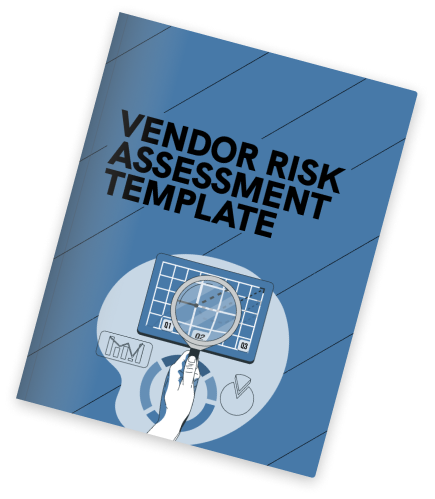
Third-party vendors bring the necessary expertise and services to your company and are a vital part of any business ecosystem, but they can also introduce cyber risk. Business partnership requires trust, so it's important to ensure that your potential vendors are abiding by appropriate security practices. Only then can you evaluate the risk of entrusting them with your critical data.
Questionnaires that include a series of critical questions are vital for understanding how your vendors and suppliers manage cybersecurity risk. A good vendor questionnaire can significantly increase a company's ability to manage the relationship effectively and mitigate overall risk. Questionnaires provide information for the risk assessment processes and are a central part of due diligence and ongoing monitoring.
How do you determine which vendors should become your long-term business partners for goods and services? A vendor risk questionnaire will help evaluate or assess the overall risk that third parties can pose for your business. This document contains a series of questions that help reveal the potential security gaps of a third-party vendor.
Standard practice for creating a security and compliance risk assessment questionnaire is to begin with an industry-standard security assessment template. You should then modify it to reflect the unique nature of each third-party vendor.
Below are the top industry-standard security assessment methodologies you can start with to create your vendor and supplier risk assessment template. These vendor questionnaires are regularly updated and improved and are widely adopted by the world's leading companies.
When you create a vendor questionnaire, it's essential to ask the right risk assessment questions that will allow you to determine the level of risk that vendor will leave you. Be careful not to make the questionnaire too long, as it will take a long time for vendors to answer, slowing your business and also create friction among your vendor relationships.
Using industry-standard templates, you can find thousands of potential questions, and alter them to align with your company's priorities. You should also make sure that your vendor questionnaire covers additional areas of concern for your specific industry, including compliance with specific federal and state laws and regulations.
With START VRM, you will manage and customize all your vendor questionnaires in one convenient system.
The alerts and follow-up functions will save your team valuable time.
Book your demo today!
Each vendor is different and has a specific set of processes, procedures, and policies that present a diverse risk scope. That's why you should create vendor security assessment questionnaires tailored not only to your particular industry but to each vendor as well. You should also consider which data each vendor and supplier has access to and tailor your questionnaire to gain a clear picture of your vendor's data security measures.
Remember that not every question from a typical IT risk assessment questionnaire will apply to every vendor. Besides, you'll want to ask some vendors additional questions that won't apply to others. But it's essential only to ask critical questions that you need to be answered. Don't ask questions that are irrelevant to the relationship you have with your vendor. And don't waste your time gathering information you already have.
It's not easy to choose a vendor that meets your cybersecurity needs. And as more information security questionnaires are introduced, it can be challenging to determine which vendor assessment framework to use, when, for which third-party vendor, and what questions to ask.
To help you get started, we have created a vendor evaluation template, that you can download at no cost to you, which contains a list of questions you should consider asking your current or potential vendors.

Vendor questionnaires are a critical part of an effective third-party risk management program. A well-developed vendor risk assessment questionnaire provides valuable insight into the vendor's processes, procedures, and policies. That will help you be proactive in managing potential emerging risks and determine areas for improvement.
The traditional vendor questionnaire process can be arduous, even when you use one of the frameworks we discussed above. But with START, you can accelerate and streamline the process to ensure straightforward assessments and be sure that the right set of questions is asked to the relevant vendors.